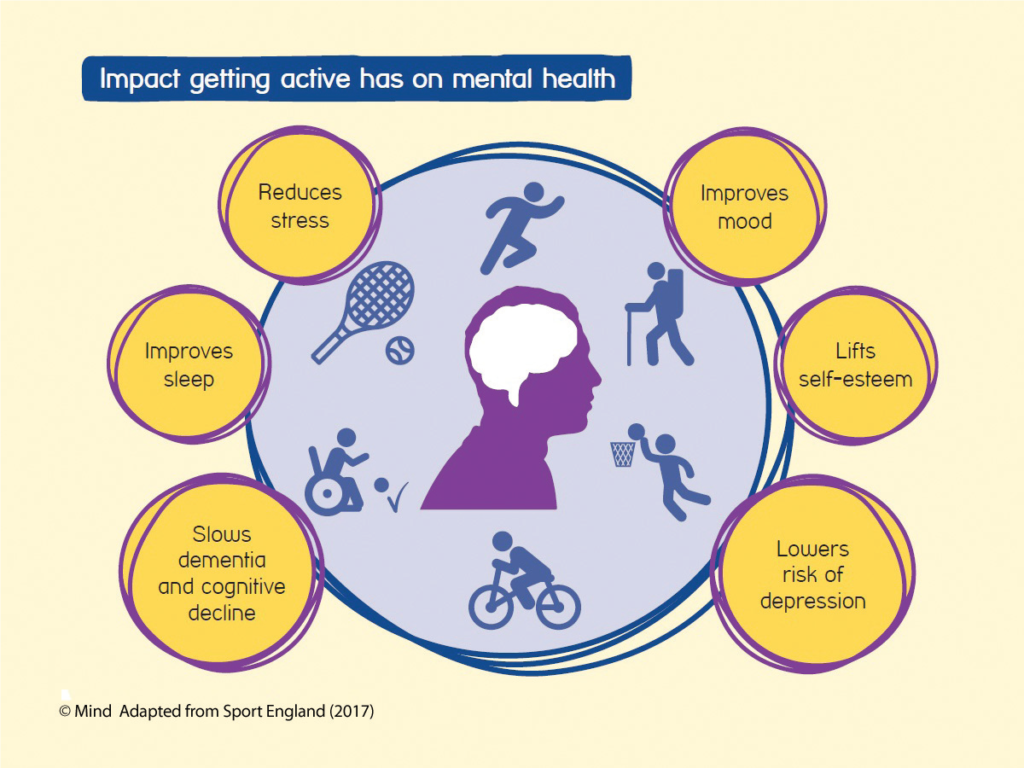Physical activity and sport have a wide range of health benefits – for your mind as well as your body. Mental health benefits include:
Only 16% of people with mental health conditions take part in sport or physical activity on a regular basis (once a week) compared to 35.7% of non-disabled people. (Active People Survey 7)
How to look after your mental health using exercise
How to improve your wellbeing through physical activity and sport
The importance of being active when you have a mental health problem
Evidence shows that people with mental health problems are more likely than the general population to have physical health problems, yet they face additional barriers to becoming active.
Having a mental health problem can increase the risk of developing serious physical health problems when compared to the wider population.
People with mental health problems are:
- Twice as likely to die from heart disease.
- Four times as likely to die from respiratory disease.
- On average, likely to die between 10 and 17 years earlier than the general population, if we have schizophrenia or bipolar disorder.
Having a long-term physical health condition can also increase the risk of developing a mental health problem such as anxiety or depression. For some people, the impact on their mental health can become more of a problem than the physical condition itself.
People with mental health problems may also experience further barriers as they are more likely to:
- have a poor diet due to neglecting self-care.
- smoke or drink too much alcohol as a coping strategy.
- be overweight or obese (this can be a side effect of taking some medications).
Exercise programmes and other treatments like cognitive behavioural therapy (CBT), other talking therapies and mindfulness have been shown to improve anxiety and depression, and quality of life for people with chronic illnesses.